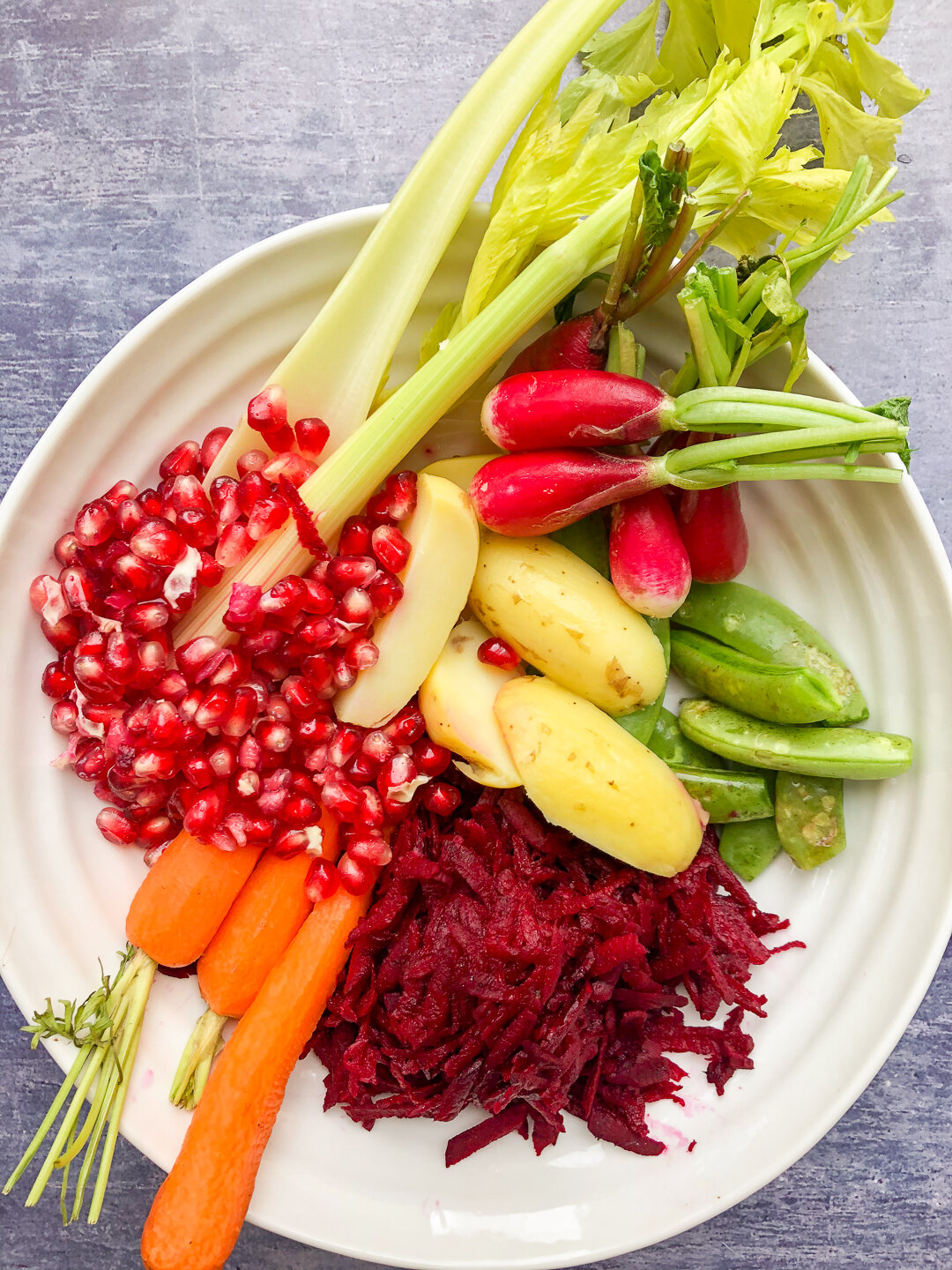How colourful is your diet?
How colourful is your diet? Do you eat a variety of plant based foods everyday?
The importance of eating a whole (i.e. non/minimal processing), plant-based diet for health, wellness and prevention of chronic disease has been well documented. However, it can sometimes feel difficult to achieve. One way to make it easier is to think about eating a rainbow, adding as many colours into your diet as possible. This is because it makes it easier for you to consume all the nutrients needed for a healthy lifestyle.
Most of us know that eating fruit and veg every day is important because they provide us with an array of vitamins and minerals. But they also contain tiny chemicals called phytonutrients. In addition to fruit and vegetables, phytonutrients are found in all plant matter including spices, seeds, nuts and wholegrains. There has been lots of research on the benefits of phytonutrients and they have become the basis of medical treatment today in diseases such as diabetes, cancer and cardiovascular disease. Around 25,000 different phytonutrients exist and in this blog, we will focus on some of the most important and their associated health benefits.
So what are the health benefits phytonutrients provide us with?
Protective against cardiovascular disease
Phytonutrient consumption has been associated with an improved blood lipid profile. Circulating LDL cholesterol (the ‘bad’ low density kind, which can be deposited in our blood vessels during times of inflammation) is decreased and less is oxidised. Aromatic plants (onions, leeks, garlic) contain sulphides and thiols which have this effect.
Phytonutrients found in dark chocolate (polyphenols in cocoa), tomatoes (lycopene), green and black tea (polyphenols), whole grains rich in phytonutrients (oats, rye, red rice) are just a few examples which have been found to have a positive impact on the circulatory system.
They have also been associated with lowering blood pressure, improved blood vessel dilation and increase HDL (the ‘good’ cholesterol).
Decreased inflammation (help fight cancer, diabetes, protect against Alzheimer's)
Cruciferous veggies are renowned for their detoxification benefits which are important in the prevention of certain cancers and diseases.
The phytonutrient sulforaphrane, found in abundance in broccoli is a powerful inducer of our livers own detoxification pathway - broccoli is possibly one of the world’s most powerful foods. Ellagic acid, found in raspberries, strawberries and walnuts has a similar effect on the liver, removing carcinogens before they are metabolised.
Curcumin found in turmeric acts as an anti-inflammatory and may affect cancer metabolism and help rid toxic compounds which could otherwise lead to cancer. Because of this property, it is currently being researched as an aid for Alzheimer’s disease.
Prevention of cell damage (aging and immune system protection)
Carotenoids (there are more than 600 of them!) work to neutralise free radicals which cause damage to cells (free radicals are caused by eating poor quality food, highly processed oils, air pollution, household toxins, to name a few). They are usually found in yellow/ orange plant matter and need to be consumed with a fat to be properly absorbed.
Many phytonutrients in brightly coloured plants also appear to reduce inflammation and boost the immune system.
Improved vision and eye health
Phytonutrient pigments lutein and zeaxathine found in kale or collard greens reduce the risk of glaucoma and have been shown to be protective against cataracts and macular degeneration. Various carotenoids have a similar effect.
Phytonutrient anthocyanins found in blueberries, strawberries, black currents and black grapes can help improve vision.
Consuming these small but mighty phytonutrients could be an effective strategy for reducing the risk of developing diseases - and who doesn’t want to do that!




